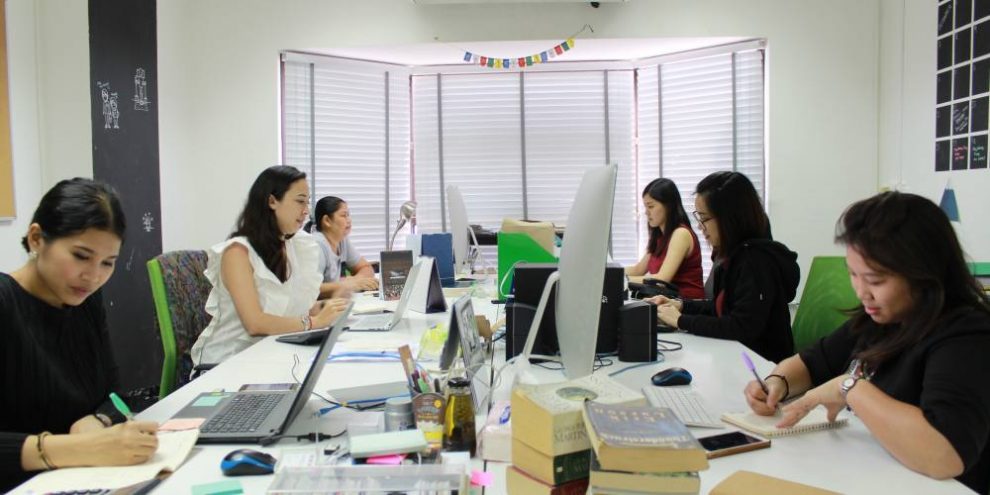
Coconuts, born as a network of city-focused sites centered around English-language audiences in Southeast Asia, has now been around for seven years. Its content, often irreverent, often derived from trending topics on social media, makes for a fun read, and that’s how it’s built its name.
The network of sites started out as an English-language city guide for Bangkok, but has now expanded across multiple cities in Asia, including Bali, Hong Kong, Jakarta, Kuala Lumpur, Manila, Singapore, and Yangon, covering entertainment, lifestyle, travel, and general news focused on life in those cities (think the Gothamist model, at least before some of them were adopted by a coalition of public radio institutions.)
Coconuts claims about two million monthly unique visitors on its sites across Asia — when you include on top of that its audience duplicated across the various social media and video platforms it publishes on, that number is around 10 million.
 But Coconuts founder Byron Perry now says he’s done with a market that he feels is mired in clickbait and hangs too heavily on Facebook’s algorithms. Earlier in March, Coconuts told its readers that it would instead start focusing on a quality, engaged audience through a paid membership plan, Coco+ ($5 USD per month; an introductory offer of $29.99 for a year). Readers will hit a paywall after 15 stories. From the announcement:
But Coconuts founder Byron Perry now says he’s done with a market that he feels is mired in clickbait and hangs too heavily on Facebook’s algorithms. Earlier in March, Coconuts told its readers that it would instead start focusing on a quality, engaged audience through a paid membership plan, Coco+ ($5 USD per month; an introductory offer of $29.99 for a year). Readers will hit a paywall after 15 stories. From the announcement:
By becoming a paid COCO+ Member, you will be contributing to better Coconuts content, including:
— More originally reported News stories.
— More in-depth and investigative Feature stories.
— More Food & Drink and Lifestyle coverage.
— More Coconuts TV videos.
— More travel stories, published in our new Coco Travel section.
— A better Coconuts iOS and Android app…coming very soon.Despite all this lofty talk — don’t worry! — we’re never going to stop writing about grannies who do yoga or naked dudes masturbating on unicycles. Telling these nutty stories is part of our DNA, and we believe there is room for both the profane and the profound in our digital pages.
This interview with Perry has been edited lightly for flow and clarity.
But the thing that I realized was that when you launch a new market you’re starting at the bottom. If advertising is your number one revenue model, you really need to get to the top or near the top.
With our current resources we can’t handle launching in several new cities, and I don’t think that would be a good strategy. It’s hard walking into a new market and building audience from scratch.

The peak of Facebook driving traffic was around 2015 to 2016. Referrals have never been more than 50 percent — it’s more like 35 percent now, so it’s decreased. After the peak of 2016, they launched video features, they prioritized videos. Then it was Instant Articles, so Facebook was no longer driving traffic to the website.
But even with the changes to Facebook announced in January, we haven’t seen a drastic drop. In fact, traffic has gone up. That could be temporary.
The main point is that all of these changes have made me realize that you can’t build a business off Facebook, and the only constant is that Facebook is going to be constantly changing. So you can’t set in place a strategy that has much permanence, because everything is always going to change on Facebook.
We followed some of the trends, and then got fed up and decided to focus on what we really wanted to do. What we think has value is longer form, higher quality stuff, totally originally produced. It may be released on Facebook and YouTube first, but we want to build off that audience to try and get deals to create videos for Netflix, iFlix, broadcast and OTTs.
So licensing is like with Netflix. We license them our videos. With iFlix, they commissioned that so they own it. So that’s a production. We’re really just producing that for them, but actually it’s a lot more than that because it has our Coconuts TV name on it.
So that is 70-30 in the last year. 70 percent was advertising and 30 percent was licensing and production. I want to grow the licensing production to be a higher percentage. The new membership and subscription initiative would be the third pillar.
We don’t want advertising to be 70 percent. Definitely not 100 percent. We want advertising to be a third.
We were inspired by WSJ+, which is constantly giving away cool tickets, event access and prizes. So I thought, we’d do two things: unlimited content on a paywall, plus giveaways like a tote bag.
Some people just want content, some people might be excited about the benefits. Some might just want the tote bag.
We did a big survey of our readers — about 4,000 people responded last year. We asked, what are we doing right? What are we doing wrong? What would you like to see more? They all wanted giveaways — which is easy for us. Brands and advertisers are always putting these things in front of us, but we prefer they spend money with us. But yeah, we’ll give you sweet, free tickets.
In terms of the number of stories, much of the audience is never going to hit the paywall. Google Analytics says 55 percent of our audience is new. But we didn’t want to put it too low because people would hit the paywall and get pissed. So we wanted to give it some leeway. But we totally reserve the right to and probably will decrease the number in the future.
I just hope that in two years, we’re profitable. We’re looking to become profitable this year and we have this diversified business that has revenue streams from those three main sources — advertising, licensing and production, and a growing membership — so we’re not chasing the whims of Facebook’s algorithm or anything else.
A version of this interview was first published in Splice Newsroom.